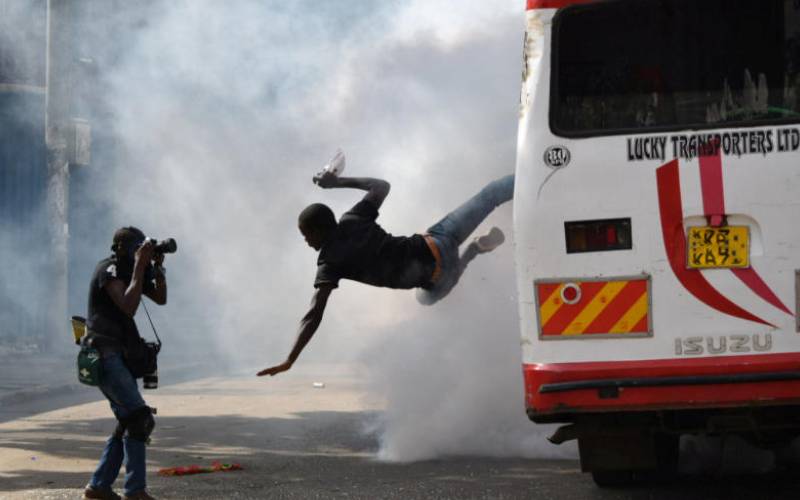
A man jumps from a bus after police fired teargas canisters to disperse protestors after Raila Odinga's swearing-in ceremony in Nairobi, January 30, 2018. [Reuters]
In 2017 I took a short sabbatical leave from Australia to the University of Auckland in New Zealand. I stayed for a month and one evening I saw in the news that New Zealand had a new prime minister. Jacinda Ardern had led the Labour Party to victory. Coincidentally, this is the year Kenya went into one of the most chaotic elections in Kenyan history. I was shocked to learn that in this small but wealthy country, the presidential election is done and announced so casually and that campaigns are done with lots of ease.